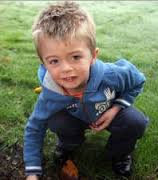By Allan Alach
I welcome suggested articles, so if you come
across a gem, email it to me at allanalach@inspire.net.nz
Science
Proves Reading To Kids Really Does Change Their Brains
Teachers
of school entrant children will already have suspected this is the case; now
here’s some proof.
Now,
for the first time, researchers have hard evidence that doing so activates the
parts of preschoolers' brains that help with mental imagery and understanding
narrative -- both of which are key for the development of language and
literacy.”
Kindergarten
boys less interested in language activities, study indicates
Following
on….
 "We
have not looked at whether the differences in reading abilities between boys
and girls have any connection with participation in language activities in
kindergarten. However, wedo know that systematic linguistic stimulation
promotes language skills in children. Unequal participation in activities that
promote linguistic stimulation may be a factor in reinforcing the differences
that already exist between children. If these gender differences persist, we
can imagine that girls will have an advantage and boys and girls will start out
on a different footing when they start primary school.”
"We
have not looked at whether the differences in reading abilities between boys
and girls have any connection with participation in language activities in
kindergarten. However, wedo know that systematic linguistic stimulation
promotes language skills in children. Unequal participation in activities that
promote linguistic stimulation may be a factor in reinforcing the differences
that already exist between children. If these gender differences persist, we
can imagine that girls will have an advantage and boys and girls will start out
on a different footing when they start primary school.”
A
Dictionary For 21st Century Teachers: Learning Models & Technology
“An index of learning models, theories,
forms, terminology, technology, and research to help you keep up with the
latest trends in 21st century learning.”
This
could change everything about school — for kids, teachers and everybody else
Excellent
article by Marion and Howard Brady.
 |
| Marion Brady |
“We’re convinced that systems theory is
the key to creating a general education curriculum free of the core curriculum’s major problems. And we’re dead certain—based on extensive classroom
experimentation—that helping kids lift into
consciousness and use their already-known systemically integrated information
organizer moves them, in just a few weeks, to performance levels not otherwise
possible.”
At
the end of our tether
Steve
Wheeler’s observations about the potential
impact of mobile technologies on learning.
 “Being able to choose when and where to
learn is part of the freedom to learn. It is not just about freedom of thought
and freedom of speech, but also freedom of space and place. It is about choice.
The is academic freedom. We have no excuse now. We are living at a time in our history
where the small device in the hand of the student is able to provide
opportunities for any time, any place learning.”
“Being able to choose when and where to
learn is part of the freedom to learn. It is not just about freedom of thought
and freedom of speech, but also freedom of space and place. It is about choice.
The is academic freedom. We have no excuse now. We are living at a time in our history
where the small device in the hand of the student is able to provide
opportunities for any time, any place learning.”
Leave the World Better than We Found It
This article is the introduction to the book
A People’s Curriculum for the Earth, which looks as though it could be very worthwhile.
“We educators need to imagine, cooperate, create, hope—and
at times, defy and resist. And we need to see ourselves as part of a broader
movement to build the kind of society that is clean and just and equal and
democratic. One that seeks to leave the world better than we found it.”
Research examines relationship between
autism and creativity
Time to have another look at autistic
children in your classroom?
 “People with high levels of autistic traits are more likely to
produce unusually creative ideas, new research confirms. While the researchers
found that people with high autistic traits produced fewer responses when
generating alternative solutions to a problem, the responses they did produce
were more original and creative. It is the first study to find a link between
autistic traits and the creative thinking processes.”
“People with high levels of autistic traits are more likely to
produce unusually creative ideas, new research confirms. While the researchers
found that people with high autistic traits produced fewer responses when
generating alternative solutions to a problem, the responses they did produce
were more original and creative. It is the first study to find a link between
autistic traits and the creative thinking processes.”
This week’s contributions from Bruce Hammonds:
18 Activities
That Make Creative Writing Actually Fun
“Here are some
great writing strategies and prompts that will honor your students’ imaginations and free their muses to soar.”
The Best
Advice for Creating Student-Centered Learning
The below article
includes an excellent small Australian video showing educational changes from
1950s to modern times – worth viewing.
 “Student-centered
learning puts the emphasis on experience and hands-on learning. Buzz words are:
Inquiry-based learning, case-based instruction, problem-based learning,
project-based learning, discovery learning, and just-in-time teaching.Whatever
you call it, the emphasis is on students becoming empowered to own their
learning. So let’s embark on a little journey
exploring student-centred learning.”
“Student-centered
learning puts the emphasis on experience and hands-on learning. Buzz words are:
Inquiry-based learning, case-based instruction, problem-based learning,
project-based learning, discovery learning, and just-in-time teaching.Whatever
you call it, the emphasis is on students becoming empowered to own their
learning. So let’s embark on a little journey
exploring student-centred learning.”
Students
Advise New Teachers: From Structure Comes Freedom
Advice for new
teachers.
“Follow these
tips and you can build a classroom culture of respect, rapport, and learning.
When the classroom culture is positive, students are more apt to participate in
all types of learning activities.”
Choosing the
wrong drivers for whole system reform
Michael Fullan
asks have we been using the wrong ‘drivers’ for educational reform? Short answer - yes!
“Successful drivers of change focus on
relentless development of ‘capacity building’ – to make learning more exciting, more engaging, and more linked to
assessment feedback loops around the achievement of higher order skills.”
 |
| Michael Fullan |
And:
“A ‘wrong
driver’ is a deliberate policy force
that has little chance of achieving the desired result, while a ‘right
driver’ is one that ends up achieving
better measurable results for students.The culprits are 1. accountability:
using test results, and teacher appraisal, to reward or punish teachers and
schools vs capacity building; 2. individual teacher and leadership quality:
promoting individual vs group solutions; 3. technology: investing in and
assuming that the wonders of the digital world will carry the day vs
instruction; 4. fragmented strategies vs integrated or systemic strategies.
Although the four ‘wrong’ components have a place in the reform constellation, they can never
be successful drivers. It is, in other words, a mistake to lead with them.”
From Bruce’s ‘goldie oldies’ file:
Guy Claxton's Magnificent Eight
 “Guy Claxton believes that teachers need to focus on how they relate
to students in their classrooms. What is important , he writes, are the values
embodied in how they talk, what they notice, the activities they design, the
environments they create, and the examples they set day after day. These
represent the culture of the class.Every lesson invites students to use certain
habits of mind, and to shelve others.”
“Guy Claxton believes that teachers need to focus on how they relate
to students in their classrooms. What is important , he writes, are the values
embodied in how they talk, what they notice, the activities they design, the
environments they create, and the examples they set day after day. These
represent the culture of the class.Every lesson invites students to use certain
habits of mind, and to shelve others.”
Bureaucratic 'creep' and curriculum ‘drag'!
Bureaucratic creep and curriculum drag 2004 – have
things improved?
“Tomorrows Schools ( when schools were made self governing in NZ in
the 80s) was all about community control - or so the publicity went. It sounded
good at the time but the possibility of local control and creativity was
quickly crushed by the imposition of confusing curriculum statements and time
wasting assessment requirements.”
In praise of slow
 “The ideas of Carl Honore, in his book ‘In
Praise of Slow’, are a real antidote to our
current obsession with productivity, speed, consumerism and ‘workaholism’, which has filtered its way into all we do – including
education. Carl Honore believes too many of us are living our lives on ‘fast forward’ and as a result our health and relationships are paying a heavy
price. Obese children are but the most recent symptom of this fast life. Carl
writes that we are to ‘over stimulated and overworked and struggle
to relax to enjoy things properly, to spend time with family and friends’.”
“The ideas of Carl Honore, in his book ‘In
Praise of Slow’, are a real antidote to our
current obsession with productivity, speed, consumerism and ‘workaholism’, which has filtered its way into all we do – including
education. Carl Honore believes too many of us are living our lives on ‘fast forward’ and as a result our health and relationships are paying a heavy
price. Obese children are but the most recent symptom of this fast life. Carl
writes that we are to ‘over stimulated and overworked and struggle
to relax to enjoy things properly, to spend time with family and friends’.”
Inspiration and challenges for today
Pioneer New Zealand creative teacher Elwyn
Richardson recognised – and some good advice for today's teachers.
 “In April of this year (2005), at the age of 80, Elwyn Richardson was
given an honorary doctorate by Massey University to recognize his work as ‘one
of New Zealand’s most inspiring, innovative and
influential teachers whose ideas were ahead of his times'. His recently
republished book ‘In The Early World’ outlines his philosophy of learning and teaching including his
respect for the emerging abilities of the children he taught. ‘They
are my teachers as I was theirs and the basis of our relationship was
sincerity, without which, I am convinced, there can be no creative education’.At the ceremony Professor Codd said that, ‘It
is timely in the 21st century to recapture teaching as an art. In the early
World inspires teachers to take risks, to contemplate values and philosophies
as central to the teaching – learning process and to adapt prescribed
curriculum to the children’s own desire to
explore , inquire and create.’’
“In April of this year (2005), at the age of 80, Elwyn Richardson was
given an honorary doctorate by Massey University to recognize his work as ‘one
of New Zealand’s most inspiring, innovative and
influential teachers whose ideas were ahead of his times'. His recently
republished book ‘In The Early World’ outlines his philosophy of learning and teaching including his
respect for the emerging abilities of the children he taught. ‘They
are my teachers as I was theirs and the basis of our relationship was
sincerity, without which, I am convinced, there can be no creative education’.At the ceremony Professor Codd said that, ‘It
is timely in the 21st century to recapture teaching as an art. In the early
World inspires teachers to take risks, to contemplate values and philosophies
as central to the teaching – learning process and to adapt prescribed
curriculum to the children’s own desire to
explore , inquire and create.’’

























